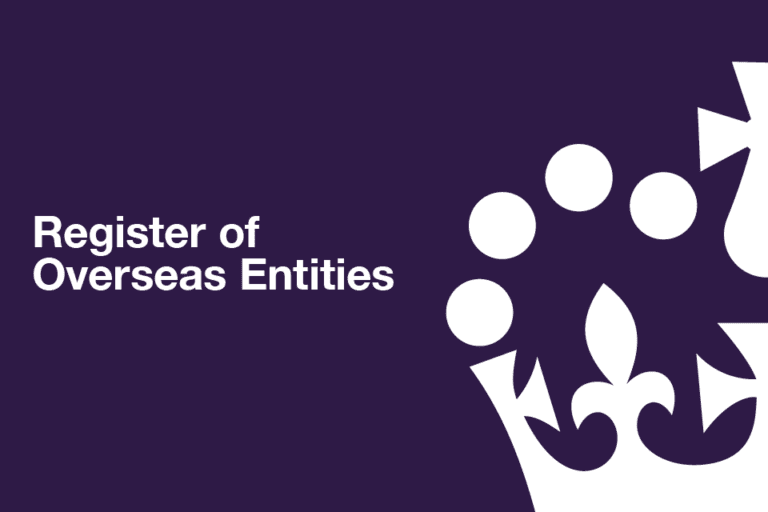This blog post has been updated. Companies House intends to launch the Register of Overseas Entities on 1 August 2022.
The new Economic Crime (Transparency and Enforcement) Bill received royal assent on 15 March and became an Act.
Under the Act, a new Register of Overseas Entities will be created and held by Companies House. This new Act forms part of the government’s strategy to combat economic crime, while making sure that legitimate businesses continue to see the UK as a great place to invest.

What we can confirm so far
Companies House intends to launch the Register of Overseas Entities on 1 August 2022, though the exact timetable for commencement has not yet been confirmed.
The new register will require overseas entities that own UK land to declare their beneficial owners or managing officers. Overseas entities will not be able to buy, sell, transfer or lease land, or create a charge against the land in the UK unless they’ve registered with Companies House.
Overseas entities who already own land in the UK will be given 6 months to register their beneficial owners or managing officers. This 6 month period will not begin until the new register has been launched. Any new purchasers will need to register with Companies House from the day the register comes into effect.
Once the overseas entity has registered and provided all the necessary information, an overseas entity ID will be provided by Companies House. This ID will then need to be shared with the relevant land registry (depending on where the land is situated in the UK) whenever the overseas entity buys, sells, transfers, leases or charges land in the UK. The overseas entity will need to update its information every year.
After registering, the name of the overseas entity and its beneficial owners will be publicly available on the Find and update company information service.
Overseas entities who do not register will face severe sanctions such as daily fines and not being able to transact with their land.
The Act will apply to land bought since January 1999 in England and Wales, since December 2014 in Scotland, and to land bought from the day the Act comes into force in Northern Ireland. Companies incorporated in the Republic of Ireland fall under the definition of an overseas entity.
What happens next
Work is progressing at pace on the creation of the new register, and Companies House and the UK’s land registries have been collaborating with the Department for Business, Energy and Industrial Strategy (BEIS) to make sure the new register is implemented as soon as possible. We’ve mapped out our key stakeholders and partners and we’re engaging with them regularly to make sure they’re actively involved with the progress of this work.
Please email us if you’d like to be added to our stakeholder distribution list.
Companies House will soon be writing to all overseas entities captured by the Act who own land in England, Wales and Scotland to make sure they know about their new responsibilities.
The launch date for the new register will be confirmed once the secondary legislation is laid. The secondary legislation will fill in the details of the new regime and will provide the practical measures required for the legislation to come into effect, including a commencement date for the new register.
We’ll publish detailed guidance on GOV.UK after the secondary legislation is laid.
We’re delighted to be at the forefront of this landmark milestone for tackling economic crime, and we’ll continue to keep you informed on our progress during the coming weeks and months.
2 comments
Comment by Steven Macdonald posted on
It states above that those already owning land etc will need to report ownership. Is this only being applied from 1999 onwards as that seems like a very short period of circa 20 years. Why are we not targeting a full land registry.
Comment by Gavin Curry posted on
The Register of Overseas Entities will only record details of those properties in England and Wales registered since January 1999 as prior to this date we did not require overseas companies to identify their territory of incorporation. The Act treats this issue differently for the 3 UK registries for this reason, for example in Scotland it's 2014 and for Northern Ireland there is no retrospective date.